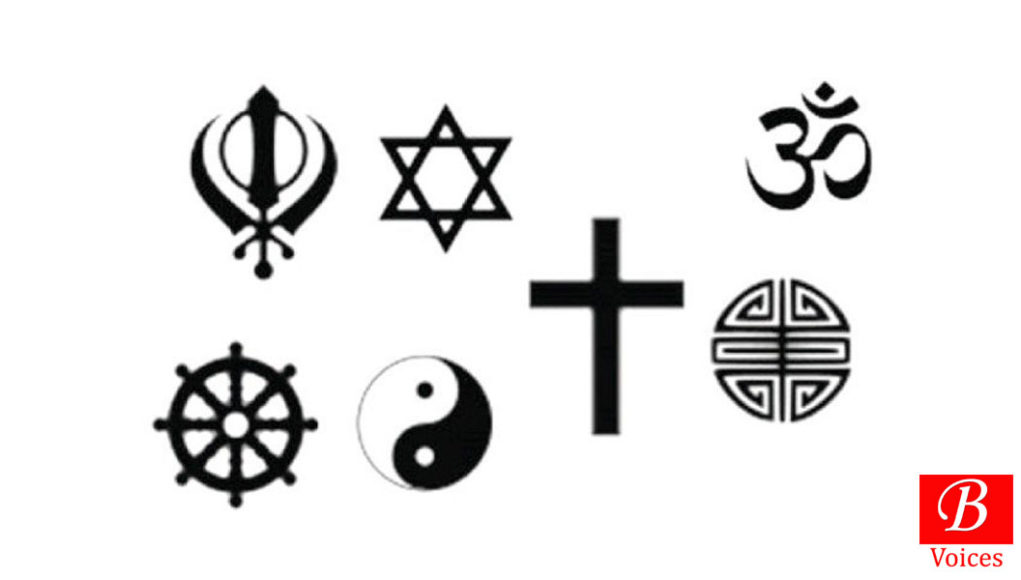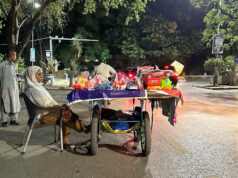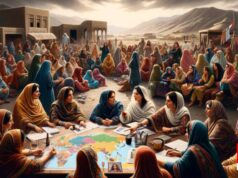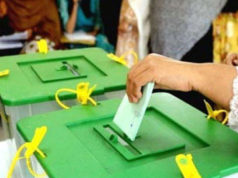Ali Jan Maqsood
Chandan Akash is a Hindu student from the Kharan district of Balochistan. He attends the Government High School Kharan where, during the class of Ethics, he found that there was no teacher to teach minority students the subject. He was told that the entire school did not have a single teacher of the Ethics subject.
Therefore, he was compelled to sit in the class of Islamic Studies – in contrary to what Pakistan’s constitution suggests that no one can ask a person in an educational institution for religious activity or anything related to a religion other than his own.
Education is every person’s universal and fundamental right, irrespective of their caste, nationality, religion, color, creed, tribe, or race. The right further extends to religious groups and no person shall be forced to participate in any religious activity that varies from his own.
Unfortunately, to an extent, things are going the other way round in Balochistan’s Kharan district – or maybe in other parts of the province or the country too – where students from minority groups are made to sit in the class of Islamiat.
“Because we were living in the most loving and comfortable atmosphere in our social life despite religious differences, it was not a matter for us to attend a class of the religion of same social organization,” Akash said.
It is worth mentioning that article 22 of the Constitution of the Islamic Republic of Pakistan reads: “No person, attending any educational institution, shall be required to receive religious instruction, or take part in any religious ceremony, or attend religious worship, if such instruction, ceremony or worship relates to a religion other than his own.”
In the given article, it is clearly stated that no one shall be required to attend any religious instructions other than his own. A relevant question to ask is why the said article is not implemented in district Kharan? Why the Hindus in Kharan are not provided teachers of Ethics? It is certainly the responsibility of the Education Department Balochistan to check the availability of teachers in all schools where minority students are enrolled.
Amidst all, Akash, along with his fellows, continued attending classes of Islamiat and took all the examinations alongside. At the same time, he appreciates his society for its ‘zero discrimination on the basis of religion, and more unity on the basis of their nationhood. “I do not know how we turned to the other way, but we all enjoy our social structure and the societal cohesion,” he said and added, “Now we are all proud Baloch.”
Things are not limited to curriculum issues for Akash’s community. Unfortunately, after facing all such crises in their institutions, when they successfully graduate from colleges and universities, they confront a lack of job opportunities in the governmental sector.
They grieve that although various jobs were announced for district Kharan where minority quota existed too yet they were disappointed when they found out that despite the submission of their forms, the jobs were given to Muslims. “Our forms were rejected without any examination so that we would be replaced with Muslims in our quota,” said Abhay, a graduate of the University of Balochistan. “In fact, I submitted my forms for the post of Levies constable as well, but I found my form was thrown out of the station a day later,” he lamented.
Abhay was a bright student since his school days till his graduation. He was committed to reaching the highest peak of his academic success. He says that he worked from dawn to dusk to get on a good, government job. “But then I eventually got to open a shop and started a private business of my own despite my sixteen years of academic degree,” he said looking at his degree – useless to get him to an opportunity of seeking a job.
Kharan, a sandy and mountainous district situated in Balochistan’s Rakhshan Division, has reportedly, as per 2017 census, a minority population of only 595 people. The census further says that 40.93% of the district’s population was illiterate. Coming of the sixty Hindu families that live there, most of them have businesses of their own. They say that although they wish to attain government jobs, yet they eventually end up launching their private businesses when all the doors of getting a government job seem closed.
The team of Balochistan Voices tried to contact Deputy Commissioner Kharan and the constituency’s Member of Provincial Assembly (MPA) Sana Ullah Baloch but got no responses. The community demands nothing from its authorities yet the due constitutional rights to education and economic opportunities are fundamental rights that the State should ensure. However, it is yet to be observed how minorities are dealt with in Pakistan, but if things are going to remain as they are now, the future may not seem promising for minorities in Pakistan.
The writer studies Law at University Law College Quetta and tweets at @Alijanmaqsood12.
Share your comments!








